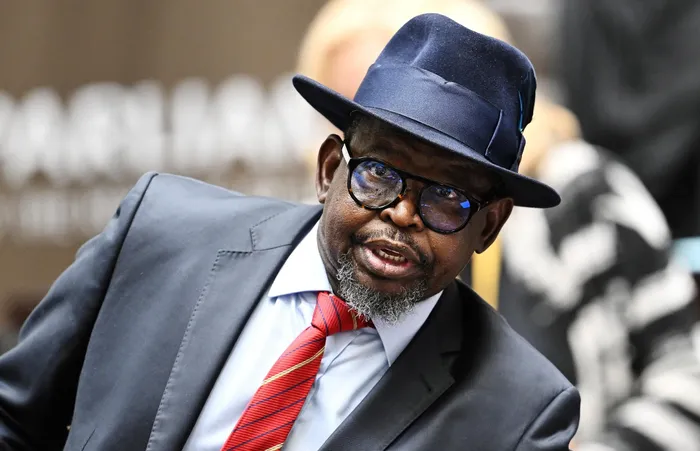MTBPS sets the stage for tax compliance and sustainable growth

As South Africans look ahead to the November announcement, the 2025 budget could signal a turning point in the quest for enhancing tax compliance and ensuring prudent governance, revitalising the economy in the process.
Image: GCIS
As South Africa prepares for its 2025 Medium-Term Budget Policy Statement, set to be unveiled on 12 November, key themes are emerging that will impact the nation’s financial landscape for years to come.
Central to this fiscal discourse is an intensified focus on revenue collection, tax compliance, and sound governance reforms, all aimed at fostering sustainable economic growth.
According to Itumeleng Nkadimeng, Head of Corporate Tax at KPMG South Africa, the spotlight in the upcoming budget will reside firmly on the South African Revenue Services’ (SARS) commitment to enhancing tax compliance.
Nkadimeng told Business Report, "Building on a significant commitment of R7.5 billion announced previously, the government is expected to adopt a modernised approach to tax administration. This strategy will likely introduce deeper audit verifications and a stronger emphasis on transparency regarding beneficial ownership."
Traditionally, the Medium-Term Budget Policy Statement provides insight into tax trends and revenue statistics.
"These figures are more than mere numbers; they represent opportunities to broaden the tax base and implement necessary reforms. This expansion is vital, especially following South Africa's recent removal from the Financial Action Task Force (FATF) grey list, which has brought renewed focus on governance, accountability, and fiscal credibility," Nkadimeng added.
"In this context, the upcoming budget will not only illustrate the government's plans for fiscal prudence but also serve as a crucial step towards establishing a framework for sustainable economic development. Efficient tax collection paired with judicious public spending is set to play a pivotal role in stimulating growth and rebuilding public trust in governance," Nkadimeng further said.
The anticipated reforms signal a progressive shift towards fostering a more compliant and transparent treasury, essential in overcoming the myriad challenges facing South Africa today.
"Stakeholders across the financial spectrum are watching closely as the Medium-Term Budget Policy Statement promises to shape not just the immediate future but the long-term economic health of the nation," Nkadimeng said.
Investect economist, Annabel Bishop, said that the Finance Minister’s presentation to parliament is not expected to see any tax changes but provide revenue and expenditure updates.
Bishop said, "For the fiscal year to date, 2025/26, the first five months shows expenditure has dropped, to 41.4% of budget, versus 43.0% of budget this time last year, with data on the sixth month to be published by National Treasury at the end of October. A moderate improvement in revenues has occurred, at 38.7% of budget versus 37.1% this time last year. The very narrow commodity rally (in precious metals) has not substantially boosted revenues yet, but a further lift in revenues is expected."
"Revenue will have to rise substantially, and expenditure fall in September, from August’s levels, in order for South Africa’s provisional financing figures to move towards half of the budgeted deficit by half of 2025/26. While the government finance figures are not yet encouraging, they do point to a less worsening versus budget compared to last year, when borrowings were increased in order to fund expenditure in a poor revenue year," Bishop said.
Looking back to last year’s MTBPS, it saw expenditure projections revised substantially higher, on special adjustments to expenditure not previously budgeted for, including the repayment of Sanral debt, “rollovers (and) defence troop deployment”.
"There were also further appropriations to expenditure for the Presidency, DIRCO and the Department of Justice and Constitutional Development in legal costs for South Africa's case in the International Court of Justice," Bishop said.
"And in addition, the “in-year adjustments also contain emergency funds related to the South African National Defence Force troop deployment in the Democratic Republic of the Congo”, with all the additional costs severely widening the deficit. Including an increase in the Covid-19 social relief of distress grant. An amount of R60 million is also added for costs related to the initial activities of South Africa's G20 Presidency in 2024/25,” the Investec economist said.
"These additional unbudgeted costs contributed to the February Budget in 2025’s proposed 2% VAT increase, along with expenditure adjustments for early retirement of civil servants. The GNU did not pass the first two budget proposals. Financial markets will therefore be watching the proposed debt and deficit figures in this year’s MTBPS very closely, along with any additional allocations for expenditure, with the GNU and the public not finding funding via large tax increases palatable," Bishop added.
BUSINESS REPORT